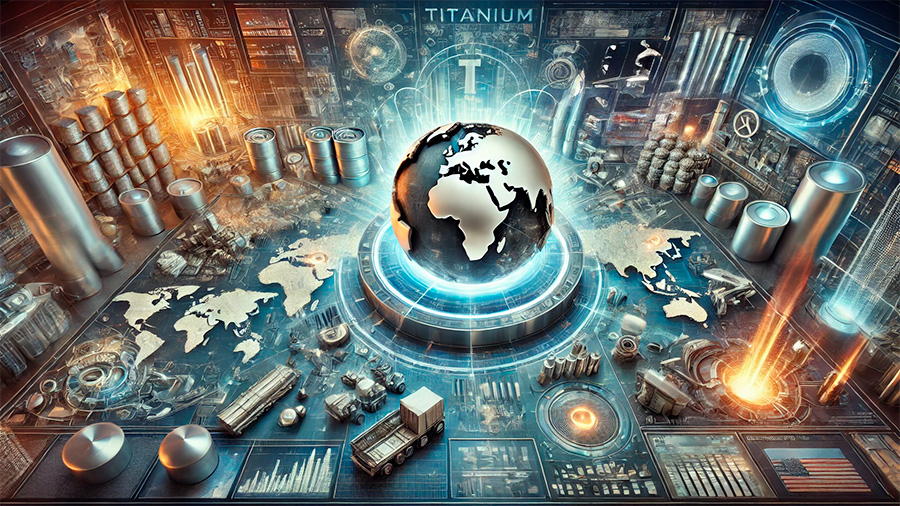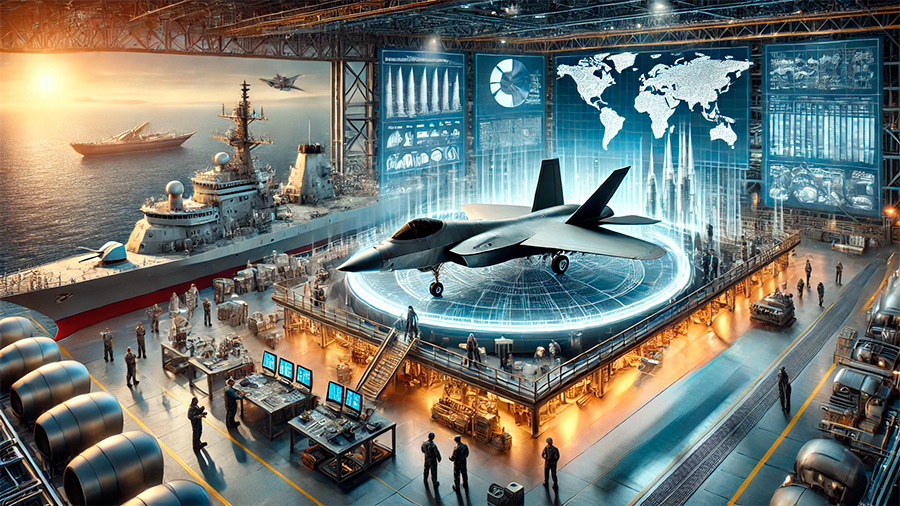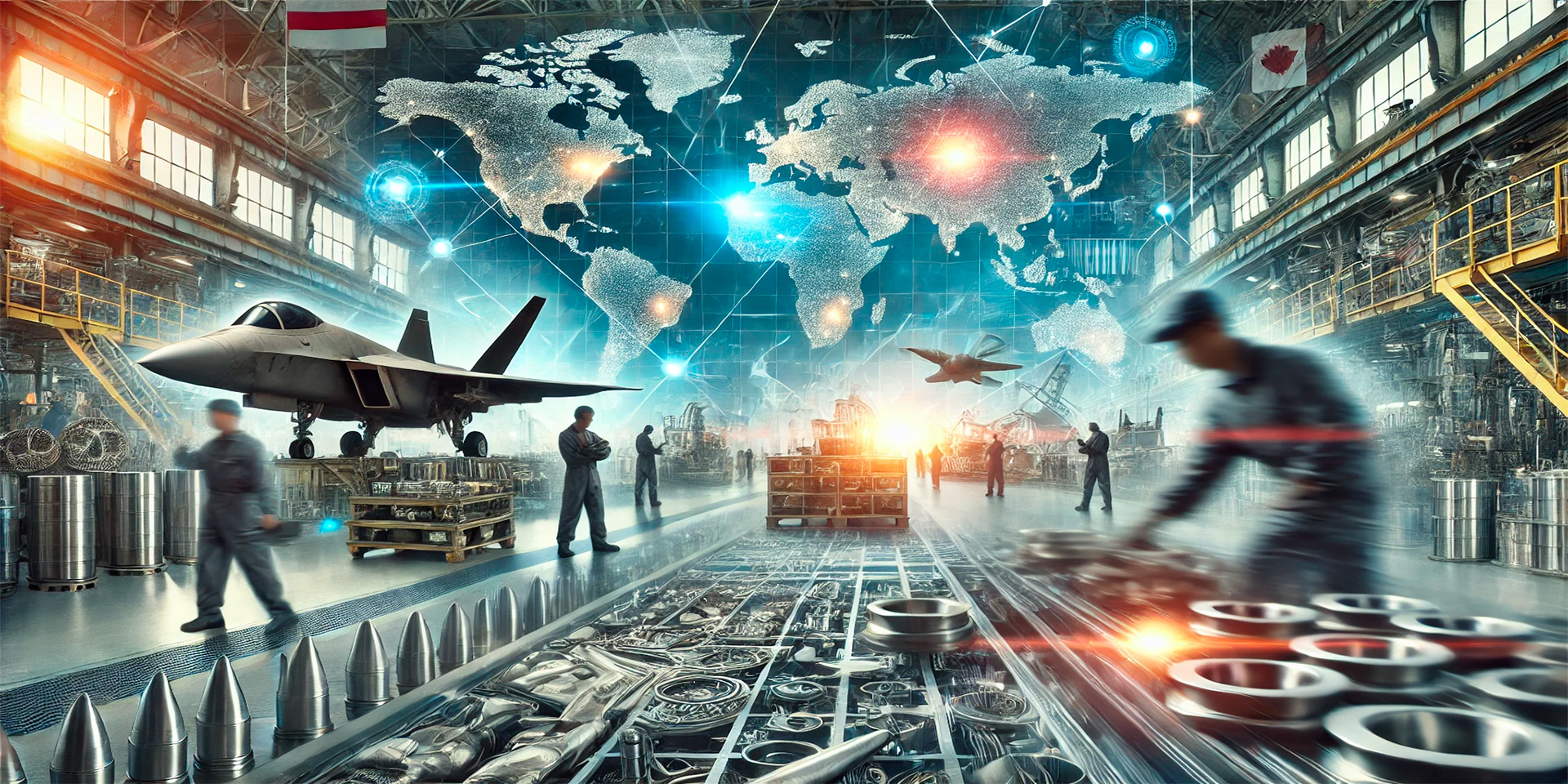Titanium, known for its strength, light weight, and resistance to corrosion, has become an essential material in modern defense manufacturing. From fighter jets and military vehicles to advanced weaponry, titanium plays a pivotal role in the creation of equipment that is critical to national security. Given its unique properties, titanium is considered a strategic metal, and its production and availability have far-reaching implications for global policies and military capabilities. This article delves into why titanium is so important for defense, how its production impacts national security, and the global policies surrounding its supply.
What Makes Titanium Essential for Defense Manufacturing?
Titanium is a versatile metal that boasts a number of physical characteristics that make it highly valuable for defense applications. Its strength-to-weight ratio is one of the highest of any metal, meaning it can provide superior durability while maintaining a light weight—an essential factor in military applications where efficiency, speed, and maneuverability are critical.
1. Strength and Durability
Titanium’s remarkable strength and durability make it an ideal material for aerospace and military applications. It can withstand high levels of stress and strain, even in extreme environments, including those encountered in space, high-altitude, or combat situations. The metal’s resistance to corrosion also makes it highly valuable in situations where longevity and durability are essential.
Why titanium’s strength matters for defense:
- Aircraft and aerospace: Titanium is used extensively in the aerospace industry, including in military aircraft such as fighter jets, where its ability to withstand high speeds and extreme temperatures is crucial for performance and safety.
- Armor protection: Titanium is often used in armor plating for military vehicles, tanks, and naval ships due to its ability to absorb and deflect impacts, providing protection against ballistic threats and explosives.
- Weaponry: The strength and resilience of titanium make it suitable for advanced weaponry, where materials must be able to handle significant stress without breaking or deforming.
2. Light Weight and Fuel Efficiency
Another crucial property of titanium is its light weight, which makes it a preferred choice for applications where reducing weight is critical, such as in aircraft and missiles. The lighter weight of titanium helps improve fuel efficiency, making military vehicles, aircraft, and ships more maneuverable and cost-effective.
How light weight enhances defense capabilities:
- Improved speed and agility: Aircraft made with titanium components are lighter and faster, improving performance in combat situations where agility and speed are paramount.
- Increased range and endurance: The reduced weight of military vehicles and aircraft made with titanium allows them to travel greater distances without compromising performance, extending mission durations and operational range.
- Enhanced fuel efficiency: Titanium’s light weight reduces the amount of fuel required for military aircraft and vehicles, thereby improving logistical efficiency and reducing operational costs.

The Impact of Titanium on Global Policies
Given its strategic importance, titanium is a critical resource in global defense manufacturing. The availability, control, and production of titanium significantly influence international relations, trade policies, and military strategies. Countries that control large titanium reserves or have access to stable titanium supply chains gain an advantage in the global military arms race and economic influence.
1. The Titanium Supply Chain and Global Trade
Titanium is not as abundant as other metals, and its extraction and processing are more complex and expensive. As a result, the supply of titanium is concentrated in specific regions, primarily in countries like Russia, China, and the United States. These countries not only control the supply of titanium but also influence global trade dynamics and military manufacturing.
Why control over titanium supply matters:
- Geopolitical leverage: Countries that possess significant titanium reserves or have control over its processing can use this resource as leverage in diplomatic negotiations, particularly in defense and trade agreements.
- National security concerns: Ensuring access to a steady supply of titanium is critical for nations’ defense capabilities. Countries without a reliable supply may face challenges in maintaining or upgrading their military equipment.
- Export restrictions and trade barriers: Nations with strong titanium industries may impose export restrictions or trade barriers on titanium, impacting global markets and forcing other countries to seek alternative sources or solutions.
2. Strategic Alliances and Military Cooperation
Because of titanium’s importance in military defense, countries with access to this resource often form strategic alliances to ensure mutual security. The control of titanium reserves can shape international military cooperation, as nations with limited access to titanium may seek partnerships with others to secure their supply.
Strategic implications of titanium control:
- Defense partnerships: Countries with abundant titanium resources may enter into defense agreements with other nations to supply essential materials for military projects, strengthening their alliances and mutual defense capabilities.
- Technology transfer and military cooperation: In exchange for titanium access, nations may share military technologies, research, and expertise, further enhancing their defense capabilities.
- Impact on global defense spending: Nations that rely heavily on imported titanium may see their defense budgets stretched, as they may need to allocate more funds to secure a consistent supply of this critical material.

The Strategic Importance of Titanium for National Security
Titanium’s unique properties, particularly its strength, durability, and light weight, make it an indispensable material for defense manufacturing. By enabling the development of advanced military technologies, such as aircraft, missiles, tanks, and naval vessels, titanium plays a vital role in ensuring the readiness and operational efficiency of armed forces around the world.
1. Military Readiness and National Defense
In times of geopolitical conflict or military engagement, nations with access to titanium reserves can quickly ramp up their defense manufacturing capabilities. The metal’s importance in the production of high-performance weapons and equipment means that securing a steady supply of titanium is essential to maintaining military readiness.
How titanium enhances national defense:
- Weapons and equipment: Titanium is used in a wide range of military technologies, including fighter jets, tanks, submarines, and weaponry. Its durability ensures that military assets are capable of withstanding the rigors of modern warfare.
- Combat and tactical advantage: Titanium-based materials enhance the performance and survivability of military vehicles, giving nations a tactical advantage in battle situations.
- Rapid mobilization: The ability to produce and maintain titanium-based military assets allows countries to rapidly mobilize and adapt to changing threats, reinforcing national security during times of crisis.
2. The Future of Titanium in National Security
As technology continues to evolve, the role of titanium in defense manufacturing is set to expand. The increasing use of titanium in space exploration, advanced robotics, and renewable energy technologies further emphasizes the growing importance of this metal. With its broad applications in both traditional and emerging technologies, titanium will continue to play a strategic role in shaping national security policies and military readiness in the future.
Conclusion
Titanium’s dual role in both defense manufacturing and global policy underscores its critical importance to national security. As a high-performance material, titanium enables the production of advanced military technologies, ensuring that nations remain competitive in the global arms race. Moreover, the strategic importance of titanium in global trade and geopolitical relations highlights the role that access to this metal plays in shaping international policies and alliances. As nations continue to rely on titanium to protect their borders, enhance military capabilities, and maintain economic stability, the metal will remain an essential asset in safeguarding national security.


